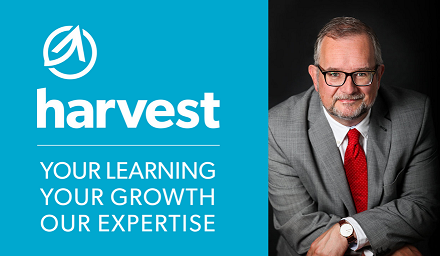One to One Coaching: Everything you Need to Know
Harvest Director and Senior Coach Frank Rock shares his insights on the benefits of coaching for the coachee, what he focuses on as the coach and some key industry figures to tie it all together.

There is so much information readily available about the reasons why you should get a coach. For me, much of the information has merit but in lots of ways it fails to capture the real essence of why coaching matters and more importantly why it works.
So here are six benefits of one-to-one coaching:
1. Offers a fresh perspective on business challenges
2. Better decision-making capability
3. Improved productivity
4. Greater work / life balance
5. More personalised learning experience
6. Improved personal effectiveness
Results from an International Coach Federation survey in 2016 reported that of those surveyed:
• 72% saw an increase/development in their relationships
• 73% noticed an increase in communication
• 80% noted an improvement in confidence
So, what do I try to create in a coaching relationship?
Every one of my coaching clients is inundated with information, meeting-wearied and time poor. One of the impacts of this is that most managers and employees are getting very little time to think. At my first meeting with a coachee, I explain to them that this is their time to have some space to think. It is also a space in which they can have a non-judgemental conversation. It is in many ways an opportunity to breathe, reflect and refuel.
Throughout each session I’m working on four main areas:
• Mindset
• Behaviours
• Skills
• Habits
The end objective is to make the coachee more confident and competent, and to increase their value proposition to their team, customers and organisations.
Why is coaching one of the best tools to use to raise and maintain performance?
The Harvest coaching philosophy is about creating independence not dependence. The sessions are bespoke to the individual. We focus on improving mindsets, changing behaviours and embedding new skills which in turn create new habits. Habits create consistency and when you can measure consistency you get new levels of performance.
So, in conclusion coaching creates:
• Awareness: Helping the coachee to become aware of the key behaviours that are sabotaging their performance
• Alignment: Coaching enables the coachee to understand the reasons why they’re on the payroll and how they can create value in what they do daily
• Accountability: one to one coaching creates ownership of the learning experience and the results.
• Results: The coaching relationship that develops between the coach and coachee enables results to be obtained quicker and the resulting performance becomes more sustainable.
Author: Frank Rock – Harvest Director & Senior Coach
Want to keep up to date with all the trends & insights from the world of work and learning? Follow us on LinkedIn: https://www.linkedin.com/company/harvest-resources_2/

